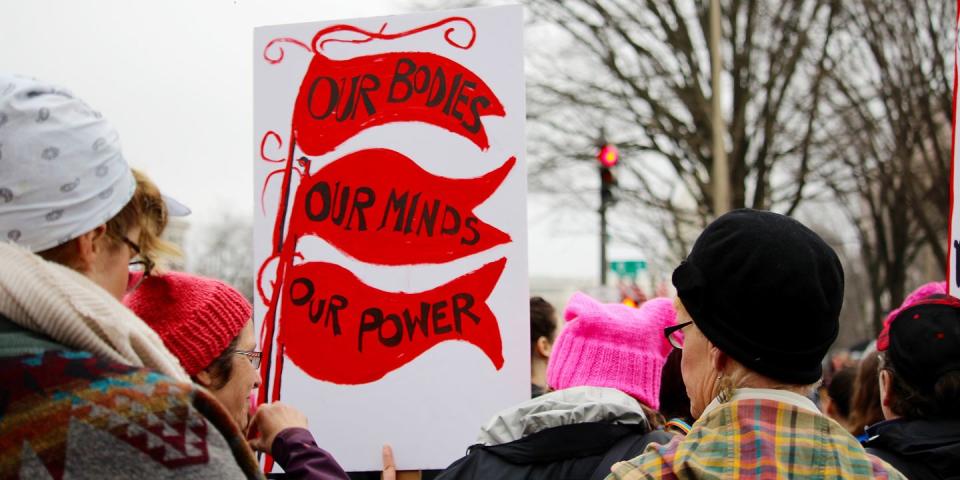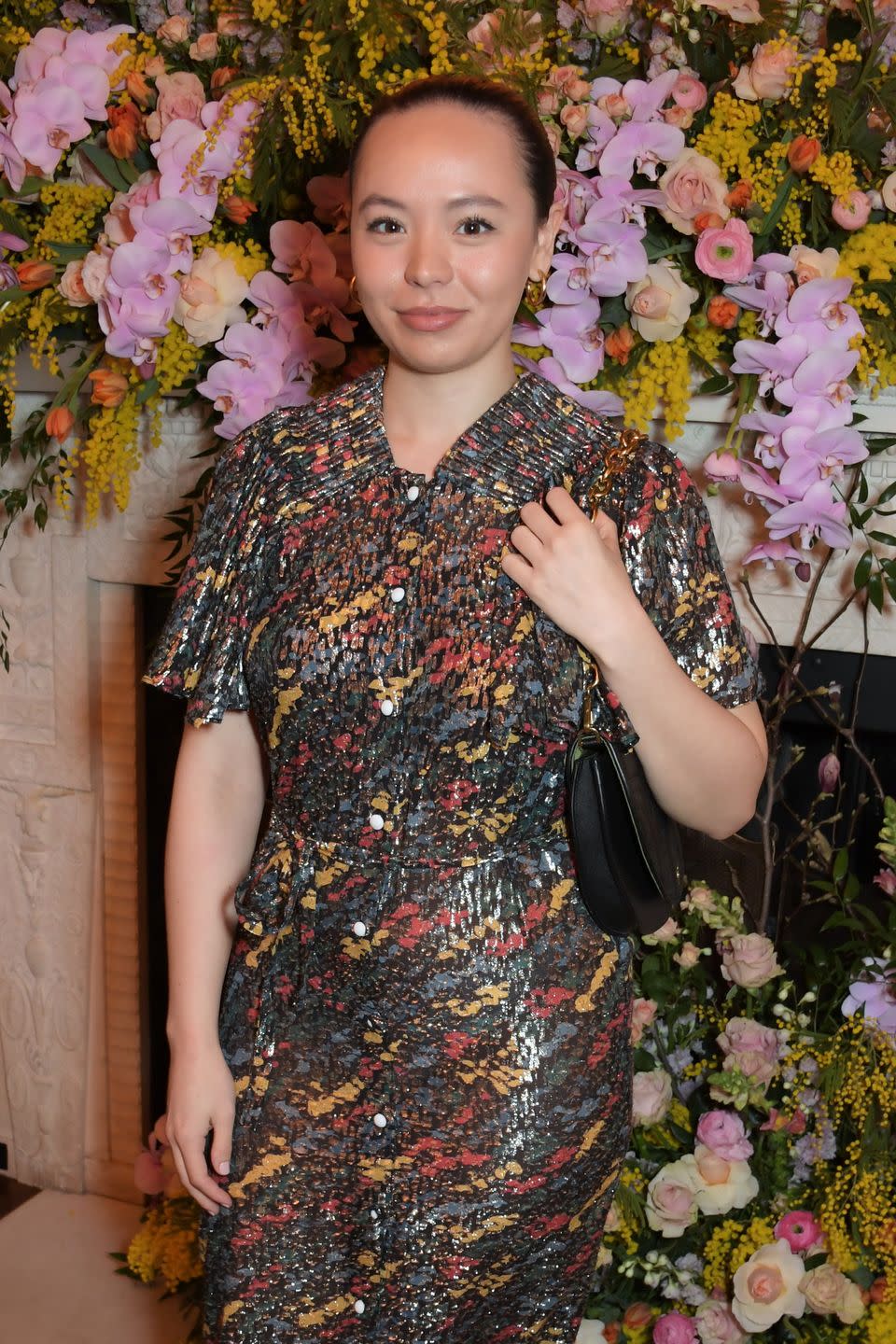Everyone's Invited Founder Soma Sara: Is Rage A Force For Change Or Destruction?

When I created the platform Everyone’s Invited - an online platform where rape survivors can share their stories anonymously - in June 2020, I could never have anticipated its subsequent explosion and the extraordinary national conversation it triggered. The topic of discussion - rape culture - was undoubtedly a controversial one. At the height of the pandemic, it was an emotive time as tension heightened and anger intensified.
Anger sprawled from two sides in the wake of growing awareness of Everyone’s Invited. Firstly, from the survivors and their allies who awakened to the scale and magnitude of sexual violence, the injustice, the life-altering traumatic experiences they had endured, and the lack of support, the silencing, shaming and victim blaming in society. A reckoning with their past, their traumas, how so much of what went on when they were teenagers was so destructive to their lives. There was rage, real female rage. Many were engrossed in the discourse of pain, of suffering, of oppression, while others channelled their anger into activism as more school girls, university students, women - young and old - unapologetically spoke up. They protested and challenged the institutions they navigated.
'Sexual violence is not bullying it is a violation of human rights'
'Girls should be safe at school'
'We stand strong, we stand tall and most importantly we stand together'

Secondly, there was anger present in the backlash towards what I'd created. A rage grew from those who wanted to challenge the testimonies submitted to Everyone’s Invited. There were boys and men who felt affronted, who cried ‘not all men’ to redirect a discussion about the societal issue of rape culture and sexual violence to protest their ‘innocence’ and absolve themselves from responsibility. A defensive plugging of the ears, attempts to shut down the dialogue, to bring the taboo subject of rape back to 'where it belongs' - hidden into obscurity, to whispers in the dark. To a place where we don't have to look the ugliness of suffering and the brutality of sexual violence in the face.
The mothers of boys launched the most virulent attacks. They told me they were concerned that their sons ‘would never be able to speak to girls again’, or that the men's ‘lives and futures’ were under the threat of false allegations. It was an instinctive impulse to safeguard their son's reputations, absolve themselves from responsibility, and protect the status quo. Even when the facts tell us that false allegations are extremely rare as shown by a CPS report, and that, according to Channel 4 research, a man in the UK is 230% times more likely to be raped himself than falsely accused of rape, yet male sexual abuse is rarely spoken about in the media compared to the air time that's given to false allegations. It's an age-old behaviour of prioritising male promise over female and side-lining victims and survivors whose lives have been marred by the traumatic impact of sexual violence. Because women and girls have long been considered lesser. They have been rendered disposable, viewed as the second sex, unworthy of humane treatment, expected to endure discomfort, pain, to accept things as they are, socialised from birth to be passive, docile, silent and unheard. It's a pervasive gender socialisation that's asked women to suppress their base human instincts; their messiness, loud voices, and anger. To suppress their rage - to preserve the hierarchy of patriarchy.

The backlash to Everyone’s Invited was painful. It was overwhelming and affronting. Yet, over time, I began to understand its importance. I asked myself: What can be mined from these verbal attacks? The backlash has been evidence that the dialogue about rape culture is alive, that there are debates and discussions that are widening perspectives. The backlash taught me that my work has only just begun, that I need to engage with the attacks with empathy, compassion and understanding. As an organisation, we need to find common ground with our critics, reach out and endeavour to build bridges in an age of increasing polarisation and division. Rage, in the form of backlash, has shown us that we need to listen to one another to make a change, because change is not possible without collaboration and community. We need everyone on board if we hope to eradicate the universal and pervasive problem of rape culture.
Throughout history we have seen the power of rage. Anger has galvanised groups to bring about collective change, to start revolutions and to overcome oppression. Rage is an active emotion - it overcomes us in an emotional and often physical way, pushing us to stand up, speak out and protest. It's an important human emotion that we all experience; it’s crucial for us to feel our rage, to recognise it and then channel it into direct action.
But there is danger in rage if we let it overwhelm and consume us. Author Brene Brown wrote in Atlas of the Heart that 'holding on to [rage] will make us exhausted and sick. Internalising anger will take away our joy and spirit; externalising anger will make us less effective in our attempts to create change and forge connection'. In the conclusion of my new book, Everyone's Invited, I write about how feeling angry as a survivor is justified. However, it's important to recognise that anger in some cases can quickly transform to violence, hate and dehumanisation. There is no justice in violence, only suffering and pain. When we choose to weaponise our victimhood and suffering, we too become the oppressors.
American author bell hooks has been quoted as talking about the importance of compassion and forgiveness, asking: 'How do we hold people accountable for wrongdoing and yet at the same time remain in touch with their humanity enough to believe in their capacity to be transformed?’ Brown has also written about the idea of having ‘compassionate justice’, describing anger as ‘an emotion we need to transform into something life-giving: courage, love, change, compassionate justice’.
As a society we must strive for change grounded in compassion. While anger is crucial in our activism, love is healing and life-giving. And it's love, not hate, that will transform our lives, society's future, and ultimately bring us hope.
Soma Sara's book Everyone's Invited is out now. Click here to purchase the book from Amazon.
You Might Also Like


